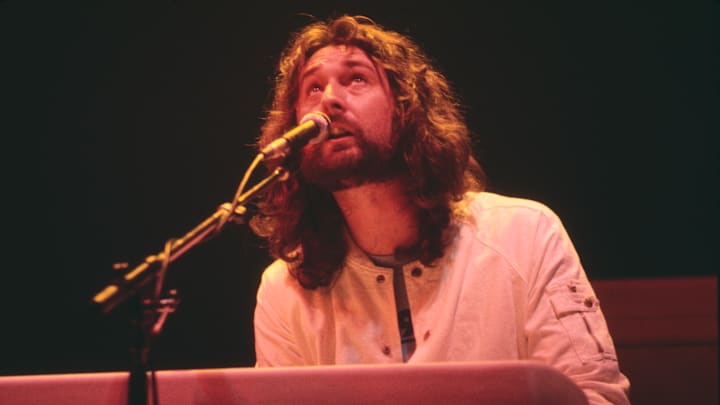If you were a fan of Supertramp’s sweet, tuneful late 1970s pop hits like “Give a Little Bit” and “The Logical Song,” you have Roger Hodgson to thank. Hodgson had the high tenor and pop melodicism of a discount bin Paul McCartney and was largely responsible for the success of the London quintet during its most commercial years.
I don’t mean that a backhand compliment. Discount bin McCartney is a pretty solid achievement.
However, Supertramp did have a little something different that separated them from contemporary arena rock monoliths like Styx and Kansas. That little bit of a progressive edge came from Hodgson’s co-founder and co-songwriter, Rick Davies.
Davies passed away this past weekend at the age of 81. He had been in poor health for the better part of the last decade, but had still managed to perform as recently as 2022. The glory days of Supertramp were more than forty years in the past, but Davies said he still loves playing his electric piano.
Rick Davies added a touch of prog rock to Supertramp’s pop
Davies wasn’t exactly John Lennon to Hodgson’s McCartney, but there was a little bit of Lennon in his working class background. He was in and out of various bands throughout his youth. One had a young Gilbert O’Sullivan on board.
Davies combined his love of old-school rock and roll with an interest in newer progressive sounds, and when he teamed up with Hodgson, the two formed a potent songwriting team.
In a sense, Davies was closer to Chris Difford of Squeeze fame. Difford and Glenn Tilbrook were billed as the “new” Lennon and McCartney of the 1970s, with Tillbrook doing most of the singing while Difford sang harmony.
But Davies sensibilities were different enough from those of Hodgson to create some good creative tension and dynamism – and eventually lead to the classic lineup’s disillusion several years after their greatest success.
That was 1979’s Breakfast in America, a number one album in the USA and all over the world, which spawned three top 20 singles. Two of them – “The Logical Song” and “Take the Long Way Home” – were primarily the work of Hodgson. “Goodbye Stranger,” with its jazzier piano groove and baritone lead vocals, was Davies.
He had shown how that somewhat looser, rougher sound could still score a hit with the B-side of the band’s very first charting single, “Dreamer,” in 1974. “Bloody Well Right” had pretty much all the colors of Rick Davies – the jazz, the rock, the irreverence. It did not have Hodgson’s falsetto, which would become more of a hallmark in the band’s later hits.
The duo didn’t have the best of separations. After a troubled production on the Breakfast in America follow-up …Famous Last Words…, Hodgson departed. Davies took the band in a different direction, going back to the more progressive rock that he had preferred on 1985’s Brother Where You Bound.
That album was mostly roasted at the time for abandoning the pure pop of their late ‘70s output, but hearing it today, especially on Cannonball and the epic 16-minute title track, it has dated a lot better than much prog rock of its era.
On the final album he created with Hodgson, Davies wrote a sweet little gospel-tinged tune that provided a perfect epitaph for so many classic rockers who hit the heights but couldn’t really hold onto fame for very long.
“Put on your old brown shoes
Right on your feet
It’s time to move on, get away
But you know you paid your dues
You did all you could
Time to move on, no more to say”
Fortunately, before he moved on, Roger Davies, did have a lot to say.
